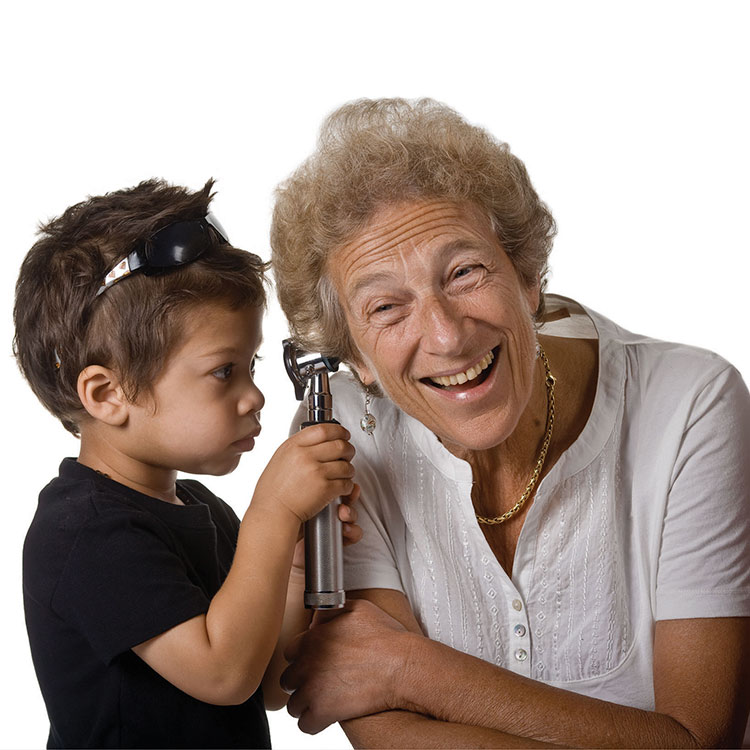Search
Research
Ngulluk Moort, Ngulluk Boodja, Ngulluk Wirin (our family, our country, our spirit): An Aboriginal Participatory Action Research study protocolWe are working with the leadership and staff at foster care agencies and community members to provide information about cultural connection, and cultural activity and resources for Aboriginal children living in non-Aboriginal care arrangements.
Research
Vision loss and diabetic retinopathy prevalence and risk among a cohort of Indigenous and non-Indigenous Australians with type 2 diabetes receiving renal haemodialysis treatmentDiabetic nephropathy, vision loss and diabetic retinopathy are frequent comorbidities among individuals with type 2 diabetes (T2D). The Retinopathy in People Currently On Renal Dialysis study sought to examine the epidemiology and risk of vision impairment and among a cohort of Indigenous and non-Indigenous Australians with T2D currently receiving haemodialysis for end-stage renal failure.
Research
Evaluating the role of asymptomatic throat carriage of Streptococcus pyogenes in impetigo transmission in remote Aboriginal communities in Northern Territory, Australia: a retrospective genomic analysisStreptococcus pyogenes, or group A Streptococcus (GAS), infections contribute to a high burden of disease in Aboriginal Australians, causing skin infections and immune sequelae such as rheumatic heart disease. Controlling skin infections in these populations has proven difficult, with transmission dynamics being poorly understood. We aimed to identify the relative contributions of impetigo and asymptomatic throat carriage to GAS transmission.
Research
Formative evaluation of a community-based approach to reduce the incidence of Strep A infections and acute rheumatic feverWe explore the acceptability of a novel, outreached-based approach to improve primary and primordial prevention of Strep A skin sores, sore throats and acute rheumatic fever in remote Aboriginal communities. A comprehensive prevention program delivered by trained Aboriginal Community Workers was evaluated using approximately fortnightly household surveys about health and housing and clinical records.
Research
A model of population dynamics with complex household structure and mobility: implications for transmission and control of communicable diseasesHouseholds are known to be high-risk locations for the transmission of communicable diseases. Numerous modelling studies have demonstrated the important role of households in sustaining both communicable diseases outbreaks and endemic transmission, and as the focus for control efforts. However, these studies typically assume that households are associated with a single dwelling and have static membership.
Research
The Koolungar Moorditj Healthy Skin Project: Elder and Community Led Resources Strengthen Aboriginal Voice for Skin HealthIn partnership with local Aboriginal Community Controlled Health Organisations, the Elder-led co-designed Koolungar Moorditj Healthy Skin project is guided by principles of reciprocity, capacity building, respect, and community involvement. Through this work, the team of Elders, community members, clinicians and research staff have gained insight into the skin health needs of urban-living Aboriginal koolungar (children); and having identified a lack of targeted and culturally appropriate health literacy and health promotion resources on moorditj (strong) skin, prioritised development of community-created healthy skin resources.
Research
Prevalence and burden of coronary artery disease on computed tomography coronary angiography and its correlation with high-density lipoprotein in the Northern Territory, AustraliaIndigenous Australians are known to have a higher prevalence of coronary artery disease (CAD) than non-Indigenous counterparts. Atherogenic lipid profiles, characterised by low serum levels of high-density lipoprotein (HDL) and higher serum triglycerides, have been shown to be more prevalent in Indigenous Australians. The use of computed tomography coronary angiography (CTCA) for risk stratification and diagnosis of CAD has been validated in moderate risk populations, but limited data exists in specific high-risk populations such as Indigenous Australians.
Research
Interchangeability, immunogenicity and safety of a combined 10-valent pneumococcal Haemophilus influenzae protein D conjugate vaccine (Synflorix) and 13-valent-PCV (Prevenar13) schedule at 1-2-4-6 months: PREVIX_COMBO, a 3-arm randomised controlled trialAboriginal children living in remote communities are at high risk of early and persistent otitis media. Streptococcus pneumoniae and non-typeable Haemophilus influenzae (NTHi) are primary pathogens. Vaccines with potential to prevent early OM have not been evaluated in this population. We compared immunogenicity (ELISA and opsonophagocytic activity) of a combination of Synflorix™ (PHiD-CV10, 10 serotypes and protein D of NTHi) and Prevenar13™ (PCV13, 10 serotypes plus 3, 6A, and 19A), with recommended schedules.

News & Events
Homes crucial for healthy earsThe Kids researchers discovered that overcrowding is the strongest predictor of carriage of bacteria that cause otitis media
News & Events
Pneumonia rates improve in Aboriginal childrenNew research from The Kids for Child Health Research shows that the pneumococcal vaccine program has contributed to closing of the gap
